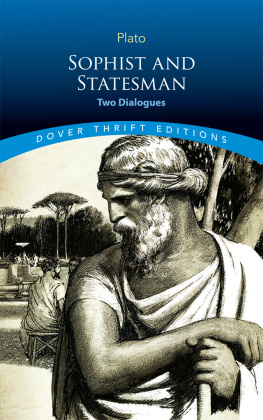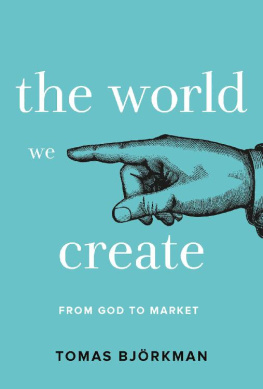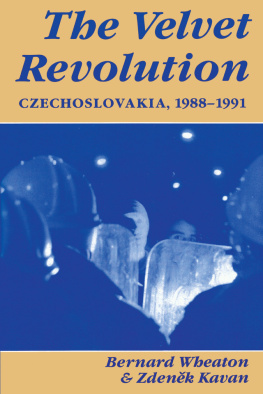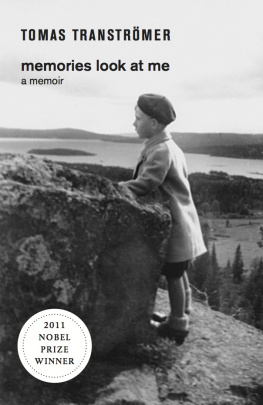Tom G. Masaryk
a Scholar and a Statesman
The Philosophical Background of His Political Views
Zdenk V. David
Copyright by Zdenk V. David 2020
All rights reserved
Published in the United States by:
Helena History Press LLC
A division of KKL Publications LLC, Reno, Nevada USA www.helenahistorypress.com
Publishing scholarship about and from Central and East Europe
ISBN 9781-94359613-3
Order now :
Copy Editor: Jill Hannum, Krisztina Ks Graphic Designer: Sebastian Stachowski
Printed In Hungary by Prime Rate Kft., Budapest
Preface
Although subject to some revisionism since the end of the Cold War (when he was considered one of the "Champions of Liberty"), the importance of the political thought of Tom G. Masaryk (18501937), the first president of Czechoslovakia, has been based on two considerations. One was his image as the principal shaper of the democratic culture in inter-war Czechoslovakia, which was unique in East-Central Europe. The other image was as a model of political prudence and sagacity, not only for East-Central Europe but one recognized universally (like that of Vclav Havel at the turn of the twentieth century). In the period between World Wars I and II, two leading European intellectualsThomas Mann and George Bernard Shawwere asked on separate occasions, whom they would suggest as the first president of the United States of Europe. Both responded unequivocally that the best candidate was Masaryk. He was called "the wisest European of today" by Emil Ludwig, and "the greatest man in Europe" by Herbert G. Wells (due to "Masaryk's tireless struggle for the welfare of mankind"). John MacCormac, writing in the New York Times on March 2, 1930, saw in Masaryk a personage of the same caliber as Washington, Lincoln, and Wilson. In May 1935, Masaryk received the medal of the Woodrow Wilson Foundation in recognition of his tireless struggle against tyrannical oppressors and for human rights. The citation pointed out that Masaryk originally declared the independence of Czechoslovakia in October 1918 in Washington, D.C., in agreement with the ideals of President Woodrow Wilson. Above all, according to the award, he kept the republic which he had established faithful to the principles of constitutional and parliamentary democracy, the principle of law, humanity ("valued by all civilized nations"), and the principle of freedom of expression, press, and conscience. The citation was signed by Hamilton Fish Armstrong (18931973), president of the Foundation. Other recipients of the medal included Viscount Cecil of Chelwood (Lord Robert Cecil, 18641958), Colonel Charles Lindbergh, Senator Elihu Root, and the entire League of Nations. After World War II, Oscar Jszi compared Masaryk to Woodrow Wilson, butaccording to himMasaryk surpassed Wilson in his knowledge of Europe and a sense of the realities of life. Later, in 1971, the prominent American statesman Hubert H. Humphrey stated: "Like all great national leaders, Masaryk had an appeal that was not limited to his countrymen.... A militant democrat, he shares our affection with other great national founders and preservers: Gandhi and Lincoln and Churchill."
More recently, in October 2011, the former US secretary of state Madeleine Albright defined the relationship between Masaryk and Woodrow Wilson by saying in Prague: "In real life, their partnership may not have been as warm as many of us were taught, but the connection between democratic ideals on one side of the Atlantic and the creation of a new republic here in the heart of Europe [Czechoslovakia] was genuine." Albright went on to characterize Masaryk: "He was not the first leader ... to make the case for a world that was democratic, humane and just. But few sought to achieve these goals with as much persistence and integrity over a long period of time."
Like Wilson, Masaryk brought to his political activity the assets of a profound background in scholarship as well as religious flavor. A leitmotif of Masaryk's intellectual searchand which separated him from the austere empirical realism of the Austrian philosophical tradition of his home environmentwas his desire to establish a religious dimension to the human experience. Unable to accept his native Catholicism, whether traditional or liberal, he turned to the two modernizing trends in German Lutheranism that had jettisoned traditional dogma and liturgy. Among them, he rejected the intellectualizing trend leading to German Idealism (from Kant to Hegel) that transformed theological dogmas into secularized metaphysical concepts. Instead, he gravitated to the other, non-intellectualized approach of the religion of inner feeling that he found in Friedrich A. Lange and Paul A. de Lagarde. In turn, the appeal of this approach engendered in Masarykrather surprisinglya measure of sympathy for Schopenhauer and Nietzsche, who had participated to a considerable extent in that branch of secularized Lutheran tradition. For Masaryk, endowing every act of perception with an ethical significance could incorporate a religious dimension into the empirical realism of the Austrian school, while preserving an epistemological integrity. Thus, he could avoid an epistemological dualism like that of Kant's Pure and Practical Reason. Moreover, the religion of inner feelings that developed within German Lutheranism was virtually identical with the non-dogmatic moral theology of the Unity of Brethren thatin Masaryk's viewepitomized the universal cosmopolitan contribution of the Bohemian Reformation to world culture.
An important aspect of Masaryk's life, thought, and work was his kinship with the American president Woodrow Wilson, as noted above. The kinship was, most importantly, reflected in their shared political philosophy of the crucial importance of democracy and in the vision of a peaceful world achieved through the League of Nations. The relationship was sealed by their personal contact in Washington, D.C., between April and October 1918, as well as by Masaryk's expressed admiration for Wilson. Moreover, like Wilson, Masaryk combined academic and political activity. Reflecting on the connection, he asserted that he never accepted knowledge for its own sake, just as he did not believe in art for art's sake. He maintained that knowledge was concerned with life and served life. Science and scholarship were not fruits of intellect only but also of morality. Academic knowledge involved labor, patience, precision, sincerity, and truthfulness, and those were not qualities of reason but of morality. In his Wilsonian vision Masaryk sought to build democracy not only in Czechoslovakia but also abroad. In addition to his whole-hearted support of the League of Nations, he insisted on the admission of political figures from other European countries, who were threatened with persecution as their countries became totalitarian or dictatorial, beginning with Communist Russia and ending with Nazi Germany and Austria.
In general in his decisions and actions, Masaryk actively embraced liberalism, tolerance, individualism, open society, and universal human culture, as opposed to authoritarianism, rigid ideology, intolerance, collectivism, utopianism, and essentialist nationalism. Despite his failure to appreciate the roots of Austro-Bohemian realism and universalism in the Catholic Enlightenment of the eighteenth century (which in Bohemia shared its roots with the Utraquism of the sixteenth century), he became an heir to this tradition thanks to his immersion in the Austrian school of philosophy, as it had developed in the latter part of the nineteenth century, particularly when guided by Franz Brentano. It is the realistic and anti-Hegelian orientation of this tradition that can be helpful in explaining the resistance to totalitarianism in twentieth-century Czech political culture that was manifest in inter-war Czechoslovakia (19181938) and distinctive in East-Central Europe. The attempts to diminish Masaryk's intellectual and political stature after the end of the Cold War could hardly affect the core of his achievement.











